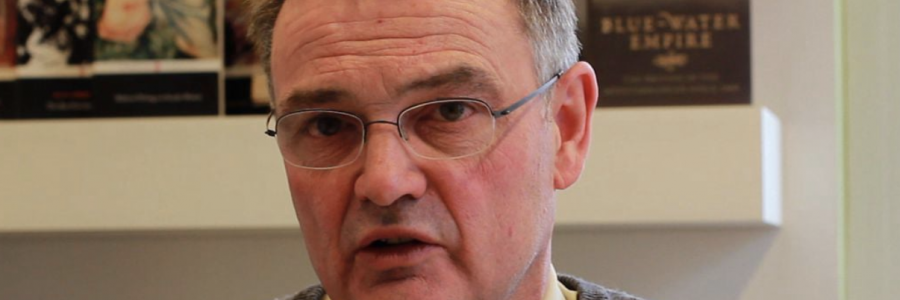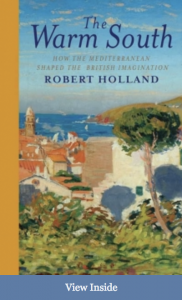
The Mediterranean myth



Robert Holland one of the World’ s leading historians describes the impact of the Mediterranean on British culture and shaped the British imagination. Ranging from Byron’s poetry to Damien Hirst’s installations, who sought form it the inspiration, beauty and fulfilment that evaded them at home. Referred to aas “Magick Land” by one traveller, dreams about the Mediterranean, and responses to it, went on to shape the culture of a nation.
“O for a beaker full of warm south “ wrote Keats in “Ode to a Nightingale”. Keats who left London in September 1820 for Italy, where five months later he died. It was indeed difficult to understand how a set of cramp rooms by the Spanish steps was believed to be better for consumption than the wide open skies of Hampstead Heath, but Mediterranean was myth. He knew nothing about Italy, wrote nothing about Italy and saw little beyond his bed curtains, but the spirit of romanticism has always been more alive at Keats’s grave in Rome’s protestant Cemetery than on Keats Grove in NW3. When Oscar Wilde visited Italy and visited Keats grave on his 1877 Italian tour, he threw himself to the ground in front of it.
For centuries life was cheaper on the continent and Holland starts with the cremation of Shelley on the beach at Viareggio “ a totemic moment in the history of the Anglo-Mediterranean cultural encounter”, in which the outcast poet become quasi-sanctified by the place and manner.
The first wave of British visitors were the well-off Grand Tourists for whom the journey south formed a large, finishing school, based on classical studies that were the core curriculum for the aristocracy in the 18th century. Several tourists did not go further than Italy, not even Sicily with its ruined Greek temples. Greek under the Ottoman rule, became part of British tourists itinerary. In Foster’s A Room With a View, his characters were stating that Greece was “absolutely out of our … focus”.
Both France and Spain began to make an appearance,
The Mediterranean meant different things at different times, but broadly speaking he argues that he almost lemming-like impulse south was due to a profound cultural insecurity that endured even as the British empire began to hold sway.
Britain’s artistic heritage was burst by reformation, which forced successive generation of artists to make the pilgrimage south to drink at the fount of the Renaissance.
Holland reminds us that Italy and Greece were countries of their mind.
The Warm South: How the Mediterranean shaped the British imagination by Robert Holland, University Press £25, 320 pages.
